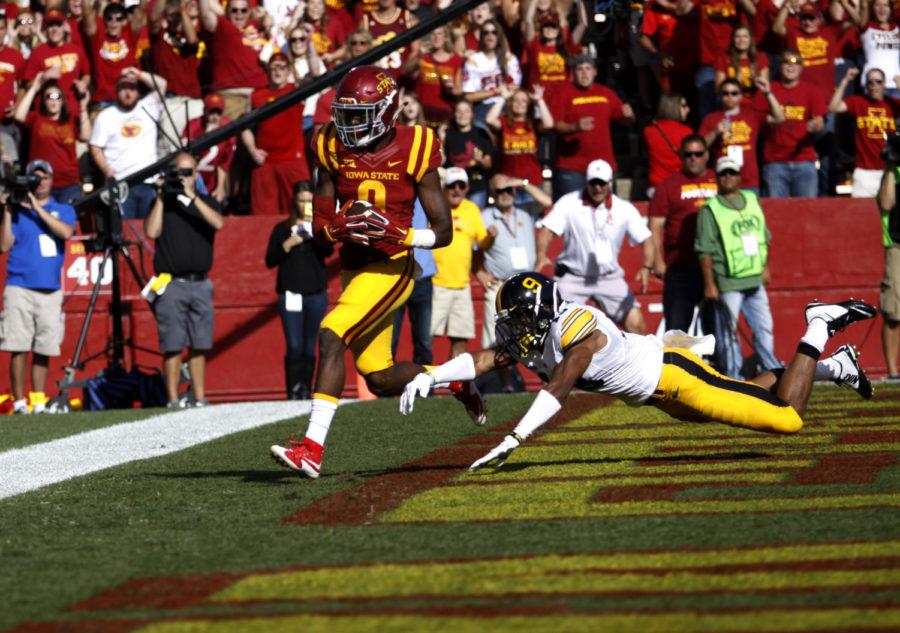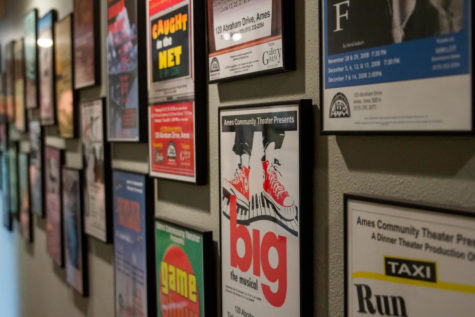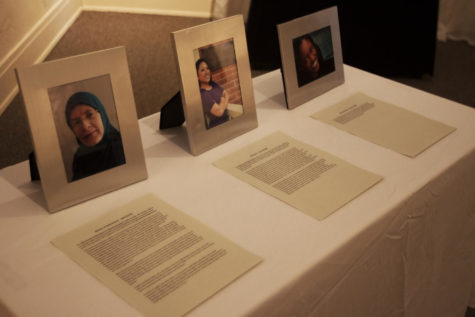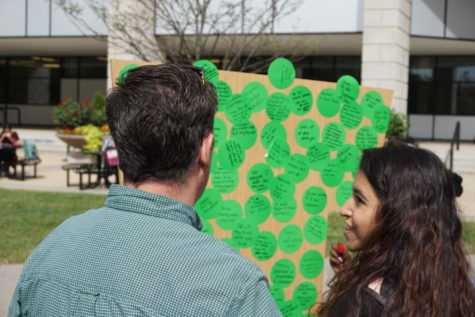Recruit the family, not the player
October 2, 2015
Five years ago, ISU wide receiver Quenton Bundrage and Tiffany Bennett sat in Manatee High School in Florida with a college recruiter from a university that Bundrage wouldn’t name.
He could have been from one of many. The wideout wrapped up his high school career with 16 offers to play college football and, along with Iowa State, expressed serious interest in Central Florida, Louisville and Cincinnati.
Bundrage did say the recruiter represented Iowa State’s primary competition in the final pursuit of his service’s as a wide receiver. And so it was only natural that Bennett, Bundrage’s most-trusted adviser, was posted at his side as he entertained the offer.
Women like Bennett wear many hats and go by many names. Sometimes, they play the role of Clarence Odbody. Other times, they assume the duties of Tom Hagen.
Guardian angel. War-time consigliere. Whoever they need to be at a given time, the most typical and all-encompassing term for women like Bennett is simple — Mom.
“When it came to recruiting, [my mom] was the go-to person that I would sit down and talk to more than anyone,” Bundrage said. “She never told me where to go, she just told me to look at certain things in each school that I was visiting.”
As the recruiter attempted to capture Bundrage and and his mother’s imaginations, regaling them with accounts of all his program had to offer, he stumbled into a crucial error.
A large wide-receiving corps and a fluid system of interchangeability at the position, something the recruiter was selling hard, turned Bundrage off.
He wasn’t selfish, but he wanted to shine. Bundrage, a man who believed in his ability then as he does now, wasn’t allured with the prospect of merely having a chance to be a face in the crowd.
Bundrage isn’t sure how quickly the recruiter recognized his fatal mistake — maybe not until he heard about Bundrage’s official decision to become a Cyclone — but his mother knew right away, without her son even saying a word.
“It just didn’t sit well with me at all,” Bundrage said. “When [the recruiter] said that, I looked at my mother, she looked at me and just gave me that look, and I was like, ‘Yep, you know where I’m going, and it’s going to be Iowa State.’
“Right then and there, I knew.”
Bundrage’s experience wasn’t entirely unique. As savvy recruiters have long known, if you convince the mother, the son is sure to follow.
“We know from analyzing our data, our success rate of getting a kid to commit if their mom comes on the visit is so much higher than if she doesn’t,” said Jamie Pollard, ISU athletic director. “Not dad so much but a huge factor with mom.”
And it makes perfect sense. Story after story emerges of young athletes who start with little and end up with everything. There are two bridges that gap that gulf — the player’s talent and the mother’s guidance. Bundrage’s tale reads similarly.
Growing up in Palmetto, Fla., Bundrage had both of his parents in his life, but they were separated. He lived at his grandmother’s home, sharing a room with his mother and sister, who slept in the bed, and his brother, who slept next to him on the floor.
“Over the years things got better. It’s not the worst story, but everything wasn’t easy growing up,” Bundrage said. “My mom had to struggle a lot to get me where I am now. She always put me ahead of her, just like she did with any of her other kids, so she really taught me a lot about life.”
One thing Bundrage’s mother hammered into him was the importance of pursuing a practical education along with football. He said she has always stressed taking advantage of the opportunity to become the first member of his family to earn a college degree in case his NFL dreams don’t pan out.
The educational prospects at Iowa State were what first elevated the institution in her view, helping the Cyclones get the proverbial foot in the door.
“She was mainly looking for the graduation rates and that type of thing because she’s really big on education,” Bundrage said. “[The graduation rate] was very high, so that really caught her eye and that really caught my eye as well.
“I will be receiving my degree in December, so that was one of the main things.”
Trusted parents are instrumental not only in the player’s process of making life-changing decisions on where to attend school but also in how these stories ultimately play out — as is highlighted in Bundrage’s case during his final season as a Cyclone.
The problem is that for some parents accompanying their children on visits and functioning as a meaningful part of the entire process is often hindered by financial concerns.
“We can sell when we get folks here,” said ISU coach Paul Rhoads. “We did have a set of parents that drove through the night to get here. Another one couldn’t just because financially [they] couldn’t. … We had to work hard to help finish that without a parent’s eyes [or] a parent’s advice to go along with that.
“I sent another email this past week [to a relevant committee] advocating the need for parents or guardians to be able to fly in on football official visits. Basketball already has that.”
In the age of autonomy, the Big 12 has the power to exert influence in the matter. The rule is as good for schools like Iowa State — which offer solid academic programs but suffer from decentralized local populations — as it is for players such as Bundrage, who rely on their parents, particularly their mothers, for guidance.
“One of the big ones that’s now coming up is you can pay for the parents to come on an official visit. I believe it’s scheduled to be on the docket [at the autonomy conference],” Pollard said. “There are things like that which you’ll now start to see move through the system.”
Pollard said he expects the rule to pass despite some resistance from larger schools in more densely populated areas, such as Texas, which aren’t interested in seeing a more-level playing field in recruiting.
The stipulation should have been passed long ago. The reason why couldn’t be more evident than in Bundrage’s simply statement of fact.
“[My mom] was always the one there to help me go through the process, and she liked Iowa State just as much as I did,” Bundrage said. “That really helped me out.”

















